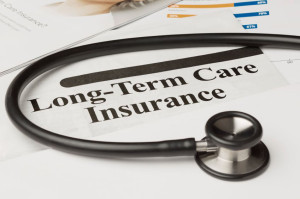27 Jun LONG TERM CARE INSURANCE BECOMING LESS AFFORDABLE BUT CAN YOU AFFORD NOT TO HAVE IT?

With fewer insurance companies offering long term care insurance (at least 14 fewer in the last 5 years) and premiums rising (for new and some existing policies) fewer may be able to afford long term care insurance (insurance that can help cover personal care costs at home, assisted living, and/or nursing homes, etc.). People are living longer due to better medical care, exercise and the knowledge of the benefits of a good diet. Insurance companies are paying more for claims since less people are letting their policies lapse and better medical care extends the lives of the chronically ill. Furthermore, insurance companies are getting less return on investments due to lower interest rates. As a result, premiums are rising.
Does this mean Americans should depend on Medicaid (the federal/state program that often assists in these types of long-term care costs)? It is this author’s general opinion that if you can afford long-term care insurance and healthy enough to get it, then it should still be strongly considered for many reasons including, but not limited to, the following: (1) you can choose where you are getting care (unlike Medicaid since not all facilities accept Medicaid – and some of the best do not); and (2) federal and state laws regarding public benefits are always subject to change (and with the federal deficit increasing, it is more likely changes will occur). For those who have more assets (but not wealthy enough to be self-insured) and perhaps have more health issues, then hybrid products such as the use of life insurance and annuities have become mor in vogue to cover long term care costs.
The bottom line is that as Americans live longer, planning for long term care (whether it be with long-term care insurance, life insurance, annuities, Medicaid or other public benefits) should be considered in most estate plans in addition to potential planning for tax savings and asset protection.
For more information on planning for long term care insurance, please call our Dallas office at (214) 720-0102.









